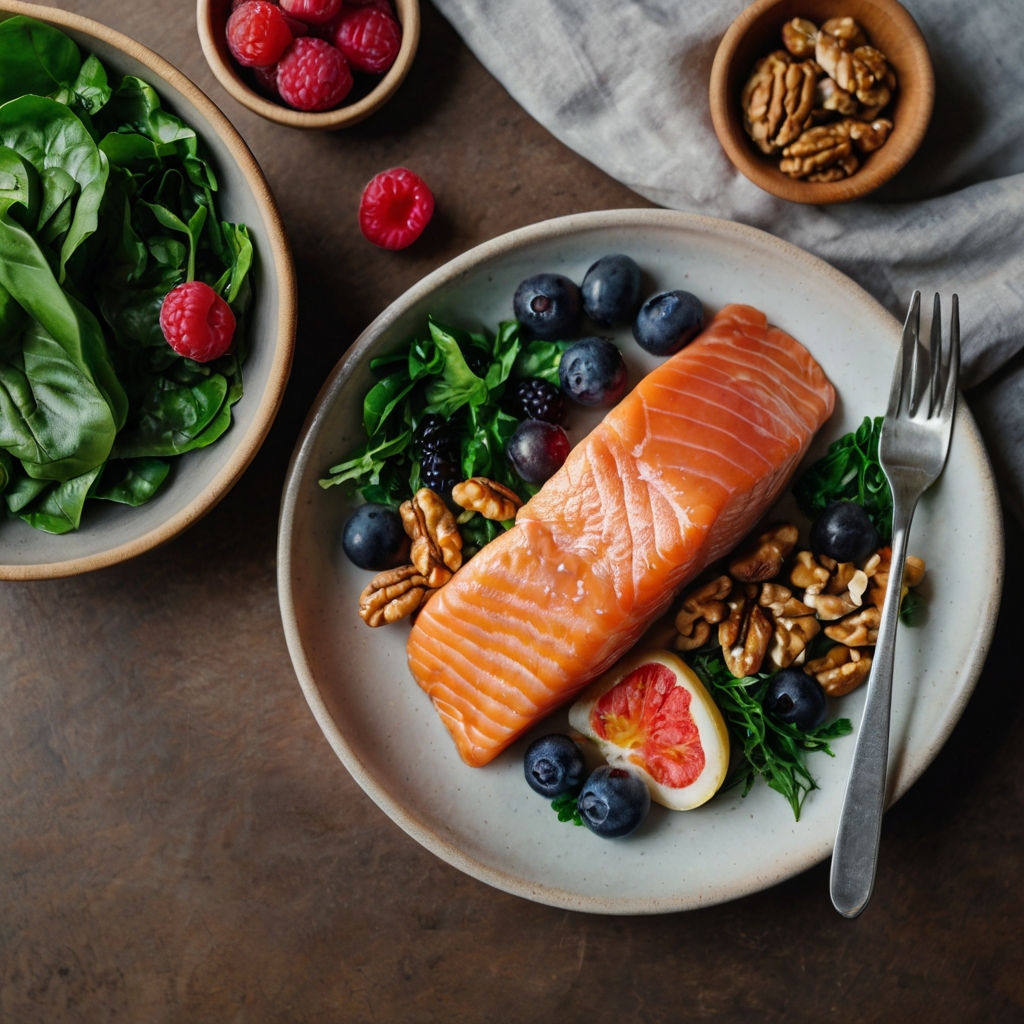The relationship between what we eat and how our brain functions is profound. Nutrition and mental performance are intrinsically connected, as the brain relies on specific nutrients to optimize focus, memory, and cognitive abilities. By understanding the impact of your diet on mental clarity and performance, you can make informed choices to support a healthier, sharper mind.
From energy-boosting foods to hydration and probiotics, there are multiple ways to support both your physical and mental health. For example, consider adding Top 5 Foods to Boost Your Energy Levels to your meals or incorporating probiotics as explained in How to Incorporate Probiotics into Your Diet.
Why Nutrition Matters for Mental Performance
Proper nutrition provides the brain with the essential building blocks it needs to function efficiently. Everything from neurotransmitter production to memory recall depends on specific nutrients. A deficiency in these can lead to fatigue, poor concentration, and even long-term mental health challenges.
Nutrition and mental performance are particularly linked through these mechanisms:
1. Energy for Cognitive Tasks
The brain consumes approximately 20% of the body’s energy. Foods rich in complex carbohydrates, healthy fats, and proteins provide a steady energy source, preventing mental fatigue.
2. Neurotransmitter Support
Neurotransmitters like serotonin and dopamine, which influence mood and focus, are directly affected by dietary choices. Foods rich in amino acids and omega-3s play a vital role in their production.
3. Long-Term Brain Health
Antioxidant-rich foods help combat oxidative stress, which can damage brain cells over time. Including these in your diet supports memory and cognitive longevity.
Brain-Boosting Foods for Optimal Mental Performance
Omega-3 Fatty Acids: The Brain’s Best Friend
Omega-3s, found in fatty fish like salmon, are crucial for brain health. They support cell membrane integrity and improve communication between neurons, enhancing focus and memory.
Sources of Omega-3s:
- Salmon, mackerel, sardines
- Flaxseeds and walnuts
- Chia seeds
Leafy Greens: Packed with Nutrients
Spinach, kale, and broccoli are high in folate, a B-vitamin essential for cognitive function. They also contain antioxidants that fight inflammation in the brain.
Probiotics: Gut-Brain Connection
The gut-brain axis highlights how gut health influences mental performance. Probiotics improve this connection by fostering a healthy microbiome, which impacts mood and cognitive clarity. Learn more in How to Incorporate Probiotics into Your Diet.
Dark Chocolate: Sweet but Smart
Dark chocolate is rich in flavonoids, compounds that increase blood flow to the brain and boost cognitive function.
The Role of Hydration in Mental Performance
Dehydration can impair memory, focus, and overall cognitive ability. Staying hydrated is a simple yet often overlooked way to maintain mental sharpness. Water facilitates nutrient delivery to brain cells and helps regulate temperature, ensuring optimal function.
Discover more in-depth insights in The Importance of Hydration for Overall Health to complement your mental performance goals.
The Science Behind Nutrition and Mental Performance
1. Blood Sugar Stability
The brain needs a steady supply of glucose to function optimally. Low blood sugar leads to brain fog and poor concentration, while balanced meals with complex carbs prevent crashes.
2. Stress and Inflammation Reduction
Certain foods, like berries and nuts, reduce inflammation and combat stress hormones, which can impair mental clarity over time.
3. Improved Neural Plasticity
Nutrients like magnesium and zinc support the brain's ability to adapt, learn, and form new connections.
Practical Tips for Enhancing Nutrition and Mental Performance
1. Plan Balanced Meals
Combine complex carbs, lean proteins, and healthy fats in every meal to sustain energy and mental clarity.
2. Include Hydrating Foods
Foods like cucumbers, oranges, and watermelons not only hydrate but also provide vitamins that support brain health.
3. Snack Smart
Opt for nuts, seeds, or yogurt with fresh fruit to fuel your brain between meals.
4. Limit Processed Foods
Sugary or highly processed foods can cause energy crashes, negatively impacting mental performance.
FAQs
Why are omega-3s essential for mental performance?
Omega-3s strengthen cell membranes in the brain, supporting neuron communication and reducing inflammation.
Can diet improve focus and memory?
Yes, a nutrient-dense diet rich in vitamins, minerals, and healthy fats directly impacts cognitive functions like focus and memory.
How does hydration affect mental performance?
Dehydration slows brain function, leading to poor memory, focus, and even mood changes. Drinking water regularly is crucial for cognitive efficiency.
Are probiotics really linked to mental health?
Yes, the gut-brain axis connects gut health with mental clarity, and probiotics foster this relationship by improving microbiome health.
What foods should I avoid for better mental performance?
Limit refined sugars, trans fats, and processed foods, as they can cause energy dips and impair focus.
Can a poor diet lead to long-term brain health issues?
Yes, chronic nutrient deficiencies can increase the risk of neurodegenerative diseases like Alzheimer’s and negatively affect memory and cognition.
Conclusion: Elevating Mental Performance with Nutrition
The link between nutrition and mental performance is undeniable. By incorporating brain-boosting foods like omega-3s, leafy greens, and probiotics into your diet, while staying hydrated, you can optimize your cognitive abilities and overall brain health. For a deeper understanding of energy-boosting foods, check out Top 5 Foods to Boost Your Energy Levels, and remember, nutrition is a lifelong investment in your mental clarity and focus.
For additional resources, explore reputable external content like the Harvard School of Public Health’s guide on brain foods.



